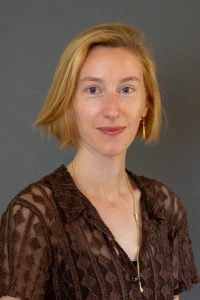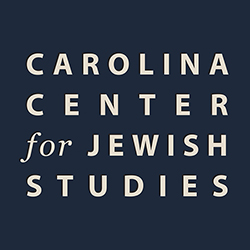 Faculty Q & A: Eliza Rose
Faculty Q & A: Eliza Rose
Exporting History to the Cosmos
Eliza Rose earned her Ph.D. from Columbia University and joined the department of Germanic and Slavic languages and literatures in July of 2019 as assistant professor and Laszlo Birinyi Sr. Fellow in Central European Studies. She speaks and/or reads seven languages and, in addition to teaching Polish language classes, she also has added new course options for Carolina students with class titles such as “Red Planet: Science Fiction and Fictions of Science in East and Central Europe” and “We, Robots: Identifying with our Automated Others in Fiction and Film.”
Q: How would you describe your research for someone unfamiliar with your field?
I study visual culture from Poland and East Central Europe. I look at how changing paradigms in technology, science and industry alter how people live together, work together, and picture their future together. My book project is a cultural history of art festivals and amateur film clubs in the industrial workplace in late-socialist Poland.
Q: Where does your research intersect with Jewish Studies?
A new project is devoted to the Jewish Labor Bund – a political party in interwar Poland that promoted the idea of “doykeit” (Yiddish for “hereness”). Doykeit expresses an ethical commitment to remaining in diaspora. The Bund advocated for Jews to commit to Poland as their home and partner with socialist organizations to improve their living conditions. My project looks at the Morgnshtern sports clubs organized by the Bund as a platform for cultivating intersectional solidarity. I hope to revive the history of these clubs as a set of ideas relevant for thinking beyond conflict today. My science fiction story “Planet Doykeit” draws from this history and exports it to the cosmos.
Q: Could you speak about your experience publishing a short story in Yiddish?
“Planet Doykeit” is actually in English with Yiddish generously mixed in. It follows the early years of a Yiddish-speaking space colony on a planet orbiting a distant star. I explore the contradiction of staying put in diaspora, or roaming great distances in order to find home. Working with Yiddish was incredibly fun: I speculated on how the language might morph and mutate over centuries. The story debuted in the July/August 2019 issue of The Magazine of Fantasy & Science Fiction, will be included in the academic volume Anti-Atlas: Towards a Critical Area Studies (UCL Press, 2020) and will be translated into Polish and published in the magazine Nowa Fantastyka.
 Interviewed by Justine Orlovsky-Schnitzler, graduate student, department of American studies, and 2019-2020 Lori and Eric Sklut Graduate Student Intern for the Center.
Interviewed by Justine Orlovsky-Schnitzler, graduate student, department of American studies, and 2019-2020 Lori and Eric Sklut Graduate Student Intern for the Center.
